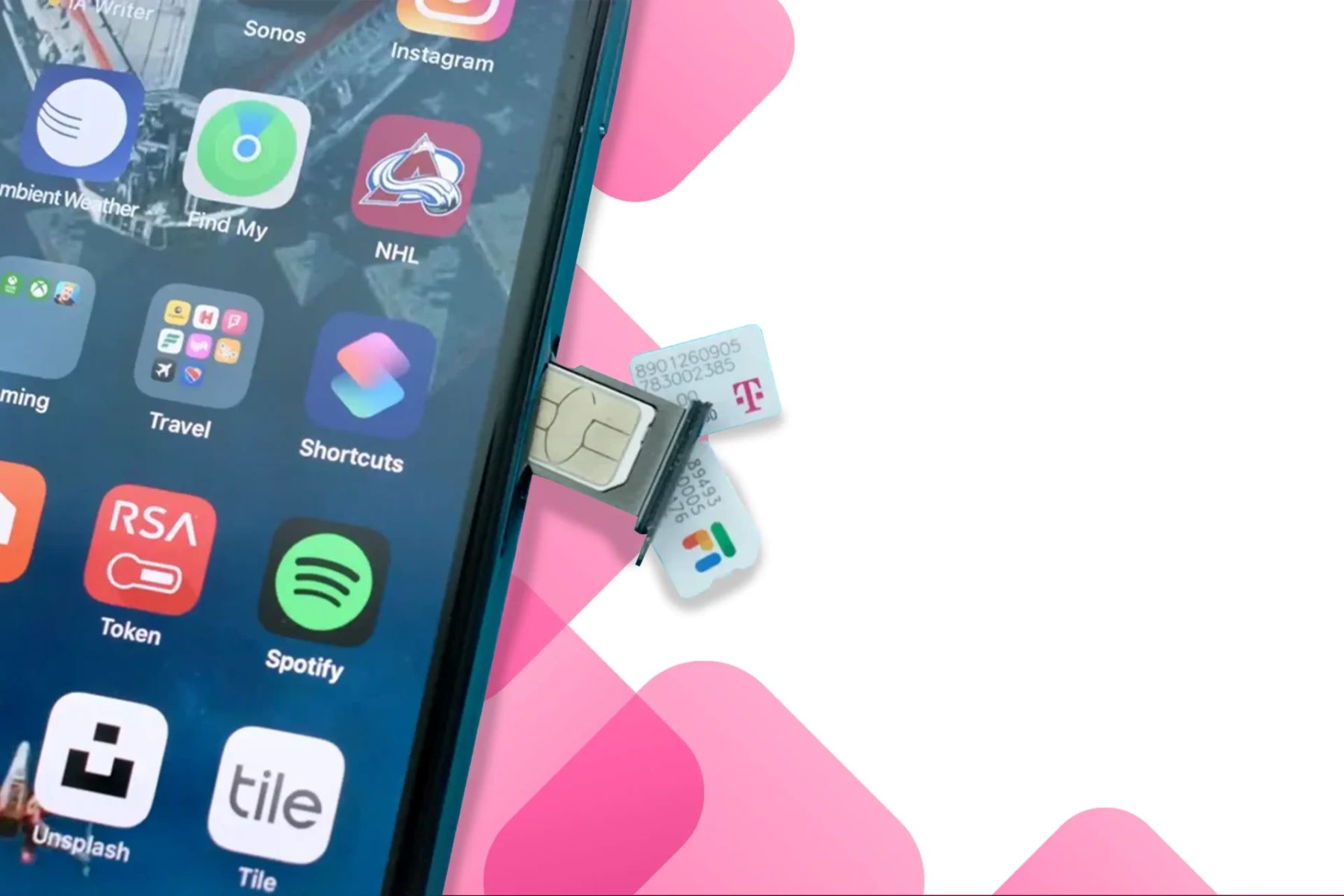What is a Locked SIM Card
A locked SIM card refers to a subscriber identity module that is restricted to use with a specific mobile network carrier. When a SIM card is locked, it is programmed to function exclusively with a designated carrier's network, thereby preventing it from being used with other carriers' networks. This restriction is typically implemented by mobile network providers to ensure that subscribers fulfill their contractual obligations and to safeguard against potential revenue loss.
Locked SIM cards are commonly associated with subsidized or discounted mobile devices that are offered by carriers in exchange for a service contract. The locking mechanism is designed to discourage subscribers from using the subsidized device with a different carrier, as this could undermine the carrier's investment in providing the device at a reduced cost. As a result, the locked SIM card serves as a form of protection for the carrier's investment in the subsidized device.
In essence, the locking of a SIM card binds a mobile device to a specific carrier, limiting the device's interoperability with other carriers' networks. This means that if a subscriber attempts to use a locked device with a SIM card from a different carrier, the device will typically display an error message or prompt the user to enter an unlock code.
It's important to note that the locking of a SIM card does not affect the device's hardware or its ability to connect to wireless networks. Instead, it is a software-based restriction that is tied to the SIM card itself. Consequently, unlocking a SIM card involves altering its software configuration to remove the carrier-imposed restrictions, thereby allowing the device to be used with SIM cards from other carriers.
In summary, a locked SIM card is a protective measure implemented by mobile network carriers to ensure that subsidized devices remain tied to their respective networks. This restriction is enforced through software programming and is designed to promote contractual compliance and protect the carrier's investment in subsidized devices.
Reasons for a Locked SIM Card
Locked SIM cards are primarily implemented by mobile network carriers for several reasons, each serving distinct purposes and benefits:
-
Contractual Obligations: When carriers offer subsidized mobile devices, they often require subscribers to enter into service contracts to recoup the cost of the device over the contract period. By locking the SIM card to their network, carriers ensure that subscribers fulfill their contractual obligations and do not immediately switch to a different carrier after acquiring a subsidized device.
-
Revenue Protection: Carriers heavily subsidize the cost of mobile devices to attract customers, with the expectation that they will generate revenue through service plans over the contract period. Locking the SIM card to their network helps carriers safeguard their investment in subsidized devices, preventing subscribers from using the device with a different carrier and potentially causing revenue loss.
-
Promotion of Brand Loyalty: Locked SIM cards promote brand loyalty by encouraging subscribers to remain with the carrier for the duration of the contract. This loyalty is fostered by limiting the interoperability of subsidized devices with other carriers' networks, thereby incentivizing subscribers to continue using the carrier's services.
-
Prevention of Device Theft: Locked SIM cards act as a deterrent against device theft. Since a device with a locked SIM card is only functional on the carrier's network, stolen devices are less attractive to thieves who intend to use or resell them with a different carrier.
-
Subsidized Device Exclusivity: By locking the SIM card to their network, carriers maintain the exclusivity of subsidized devices, ensuring that these devices are predominantly used with their services. This exclusivity helps carriers differentiate their offerings and attract customers with attractive device subsidies.
-
Regulatory Compliance: In some regions, regulatory requirements may mandate the locking of SIM cards to prevent the unauthorized use of mobile devices. This measure serves to enhance security and prevent the illicit use of devices obtained through carrier subsidies.
In essence, the implementation of locked SIM cards aligns with carriers' strategic objectives, including contractual compliance, revenue protection, brand loyalty, theft prevention, and regulatory adherence. These reasons collectively underscore the significance of locked SIM cards in the mobile telecommunications industry.
How to Unlock a Locked SIM Card
Unlocking a locked SIM card involves a series of procedures designed to remove the carrier-imposed restrictions, thereby enabling the device to be used with SIM cards from other carriers. The process of unlocking a SIM card varies depending on the carrier's policies, the type of device, and the applicable regulatory requirements. Below are the common methods used to unlock a locked SIM card:
Contacting the Carrier
One of the primary methods to unlock a locked SIM card is to contact the carrier that imposed the restriction. Carriers often provide unlock codes or specific instructions upon request, especially for devices that have fulfilled the contractual obligations or for which the unlocking criteria have been met. This process usually involves submitting a formal request and providing details such as the device's unique identifier (IMEI) and the subscriber's account information.
Third-Party Unlocking Services
There are numerous third-party services and online platforms that specialize in unlocking locked SIM cards for a fee. These services typically require the submission of the device's details and may involve providing the IMEI number to generate an unlock code. It is essential to exercise caution when using third-party services, ensuring that they are reputable and comply with legal and regulatory requirements.
Utilizing Manufacturer Unlocking
In some cases, mobile device manufacturers offer unlocking services for locked SIM cards. This option may involve submitting a request through the manufacturer's official channels, providing the necessary device details, and following the prescribed procedures to obtain an unlock code or software update.
Software Unlocking
For certain devices, especially older models, software-based unlocking methods may be available. This approach typically involves using specialized software or applications to modify the device's firmware or settings, thereby bypassing the carrier lock. It is important to note that software unlocking may void the device's warranty and could potentially lead to unintended consequences, so careful consideration and research are advised before pursuing this method.
Legal Considerations
It is crucial to emphasize that unlocking a locked SIM card should be approached with awareness of the legal and regulatory implications. In some regions, unlocking procedures must adhere to specific laws and regulations to ensure compliance and prevent unauthorized unlocking activities.
In summary, unlocking a locked SIM card involves navigating through various options, including carrier assistance, third-party services, manufacturer support, and software-based approaches. Understanding the applicable policies, legal considerations, and potential implications is essential in determining the most suitable method for unlocking a locked SIM card and enabling the interoperability of the mobile device with multiple carriers.
Implications of a Locked SIM Card
The presence of a locked SIM card carries significant implications for mobile device users, influencing various aspects of their device usage and overall telecommunications experience. Understanding these implications is essential for individuals seeking to comprehend the effects of SIM card locking and its relevance in the realm of mobile telecommunications.
Limitations on Carrier Selection
A prominent implication of a locked SIM card is the restriction it imposes on carrier selection. With a locked SIM card, users are confined to utilizing the services of the specific carrier to which the SIM card is bound. This limitation diminishes the flexibility and freedom of users to switch between carriers based on factors such as service quality, pricing, or coverage, thereby potentially impeding their ability to optimize their mobile connectivity experience.
Impact on International Roaming
For individuals who frequently travel internationally, a locked SIM card can pose challenges related to international roaming. Since the locked device is tethered to a single carrier, users may encounter obstacles when attempting to use local SIM cards from international carriers while traveling. This can lead to increased roaming charges and limited access to cost-effective local mobile services, thereby impacting the user's ability to efficiently communicate and access mobile data during international trips.
Device Resale and Market Value
The presence of a locked SIM card can influence the resale and market value of mobile devices. Prospective buyers may perceive locked devices as less desirable due to the inherent limitations associated with carrier exclusivity. This can potentially diminish the resale value of the device and limit the pool of potential buyers, thereby affecting the device's marketability and resale potential.
Unlocking Costs and Complexity
Unlocking a locked SIM card, while feasible, often entails additional costs and complexity. Users may need to navigate through carrier-specific unlocking procedures, engage third-party unlocking services, or explore alternative unlocking methods, all of which can involve monetary expenses and procedural intricacies. This aspect underscores the potential financial and logistical implications associated with unlocking a locked SIM card to enable interoperability with other carriers.
Regulatory and Legal Considerations
Locked SIM cards may intersect with regulatory and legal considerations, particularly in regions where specific laws govern the unlocking of mobile devices. Users must be mindful of the legal implications and regulatory requirements associated with unlocking a locked SIM card, ensuring compliance with applicable statutes and regulations to avoid potential legal repercussions.
In essence, the implications of a locked SIM card encompass a spectrum of factors, including limitations on carrier selection, impacts on international roaming, effects on device resale and market value, unlocking costs and complexity, as well as regulatory and legal considerations. These implications collectively underscore the multifaceted nature of SIM card locking and its ramifications within the context of mobile telecommunications.

























